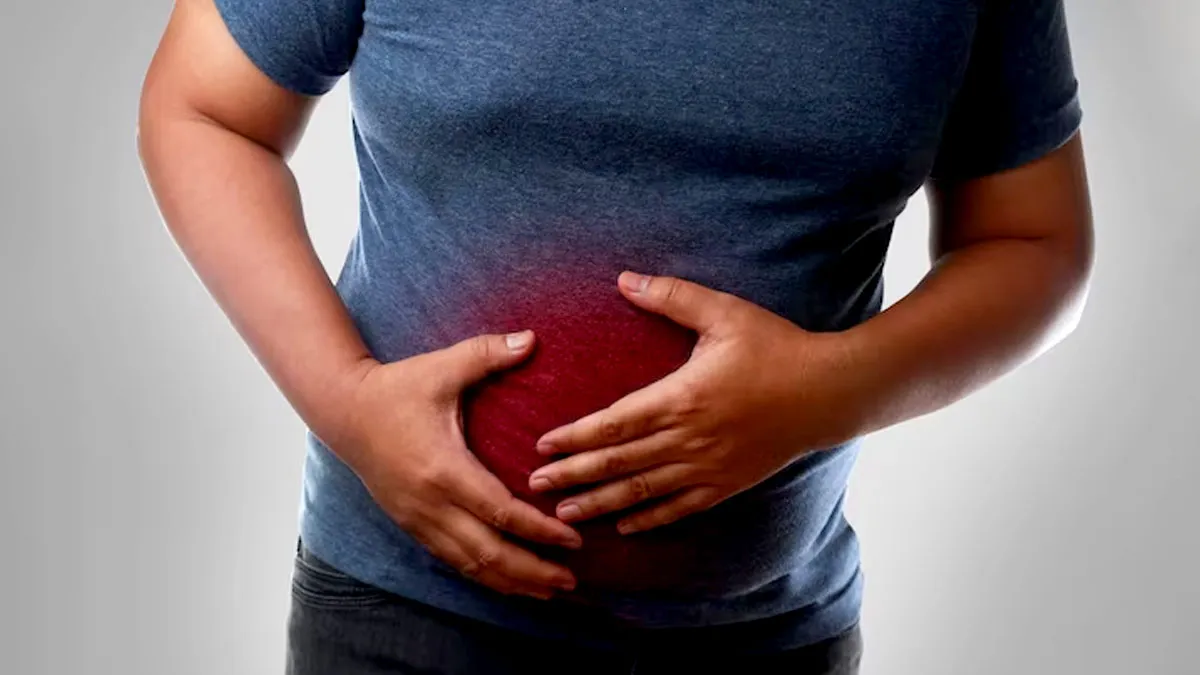
Obesity is commonly associated with heart disease, diabetes, and hypertension, but it is also linked to stomach cancer. Though many people still relate the causes of stomach cancer to smoking or the consumption of unhealthy foods, studies now show that excess body fat might just be one of the leading contributors.
Table of Content:-
The editorial team of Onlymyhealth reached out to Dr Pushpinder Gulia, Director, Surgical Oncology, at CK Birla Hospital, Gurugram, and he explained how carrying extra weight can silently raise the risk and what one can do to stay protected. Read ahead to know what he shared with us.
Link Between Obesity and Stomach Cancer
Stomach cancer, also known as gastric cancer, starts when the cells lining your stomach begin to grow uncontrollably. "Obesity plays a key role in triggering chronic inflammation, hormonal imbalance, and metabolic changes-all of which can provide a very favorable environment for cancerous cells to thrive," explained Dr Gulia.
Fat tissue isn’t just an inactive storage site for calories, it secretes hormones such as insulin, oestrogen, and inflammatory chemicals called cytokines. These may cause DNA damage, promote cell proliferation, and impair the body's immune response to cancer. Over time, this chronic inflammation may cause genetic changes in the stomach lining, which can initiate gastric cancer.
Also Read: How Vitamin A Deficiency Can Increase The Risk Of Stomach Cancer? Doctor Answers

How Visceral Fat Is The Hidden Danger
Not every fat is equal, however, the one that resides deep within your belly, known as the visceral fat, is the most harmful of them all. It wraps around abdominal organs, such as the stomach, liver, and intestines. "Visceral fat is metabolically active, releasing chemicals that interfere with insulin regulation and immune function," said Dr Gulia. The constant exposure can inflame the stomach lining and lead to the onset of precancerous lesions.
In fact, some studies have concluded that individuals with a higher WHR, though with a normal overall weight, may have a higher chance of developing gastric cancer due to their visceral fat levels.
Lifestyle and Diet Connection With Stomach Cancer
Obesity is usually the result of incorrect eating habits and a sedentary way of life, and both factors individually contribute to the development of stomach cancer. Diets high in processed meats, salty foods, and refined carbohydrates can increase cancer risk, while lack of physical activity leads to poor digestion and slow metabolism.
“People who are on a routine diet of smoked, pickled, or high-sodium foods run a great risk of stomach cancer. Add to that obesity, and it is like a double-edged sword,” Dr Gulia pointed out.
A diet comprising plenty of fresh fruits, vegetables, lean proteins, and whole grains will help reduce the risk. These foods are not only crucial in maintaining a healthy weight but also provide various antioxidants that protect the stomach lining from damage.
Also Read: Millions Born between 2008 and 2017 Could Be At Risk Of Gastric Cancer; Study

Other Contributing Factors To Stomach Cancer
While obesity is a major risk factor, it is not the only one. The bacterium Helicobacter pylori infection, excessive drinking of alcohol, and smoking contribute to the development of stomach cancer. Genetics and family medical history with gastric cancer further increase the susceptibility.
“However, keeping within a healthy weight greatly cuts your overall risk for cancer. It’s one of the biggest controllable factors we have,” Dr Gulia added.
Preventive Measures for Stomach Cancer
To reduce your risk of obesity-related stomach cancer, Dr Gulia recommended:
- It involves maintaining a healthy BMI within the range of 18.5 to 24.9 through good nutrition and exercise.
- Include fibre-rich food such as fruits, vegetables, and legumes; these will help with digestion and reduce inflammation.
- Avoiding processed and salty foods because they can irritate the lining of your stomach.
- Quitting smoking and avoiding excessive alcohol consumption.
- Getting regular check-ups, especially if you have a family history of cancer or long-term acid reflux.
"Early detection plays an important role. Visit a doctor without any delay if you have persistent symptoms, such as bloating, nausea, indigestion, or unexplained weight loss," concluded Dr Gulia.
Bottomline
It is more than just the way it makes you look, and obesity silently raises your risk of stomach cancer. Maintaining a healthy lifestyle and managing your weight can protect your gut from harmful diseases and lower your chances of cancer noticeably.
Also watch this video
FAQ
1. Does weight loss decrease the risk of stomach cancer?
Yes. A healthy weight reduces inflammation and minimises hormone imbalances, thereby decreasing the risk for cancers.2. Are obese people the only ones at risk of stomach cancer?
No, but obesity greatly increases your risk. Other contributing risk factors include smoking, poor diet, and H. pylori infection.3. What are the early signs of stomach cancer to watch out for?
Symptoms include persistent indigestion, bloating, nausea, stomach pain, and unexplained weight loss. If these persist, seek medical attention.
How we keep this article up to date:
We work with experts and keep a close eye on the latest in health and wellness. Whenever there is a new research or helpful information, we update our articles with accurate and useful advice.
Current Version
Nov 13, 2025 15:35 IST
Published By : Tanya Srivastava
